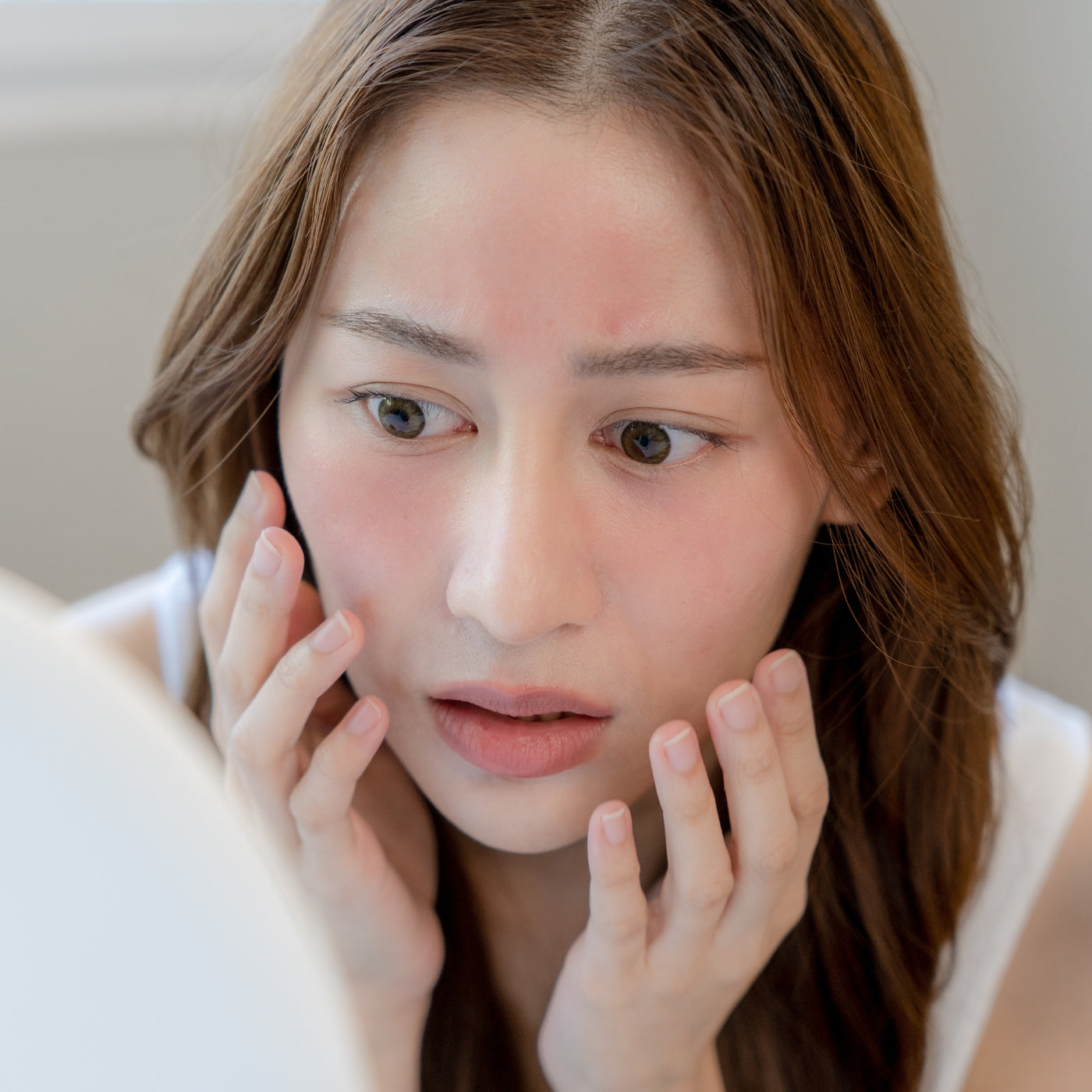
Nobody has perfect skin. Everyone has one or more skin-related problems. Any skin condition can be made worse by a variety of behaviours, so it is best to exercise caution when it comes to acne. Acne affects our self-confidence and how we present ourselves to the world, not to mention causing long-term scarring, so recognising any way in which we can avoid it can be crucial.
Let’s admit it - when we look in the mirror and notice a pimple (or three), we can’t hold the urge to take our fingers and squeeze all the gunk out. How satisfying, right?
Even though we are well aware of the reasons why we shouldn't even pick at our blemishes in the first place, we frequently make the same error that could ultimately cause more harm to our skin than we realise.
While we're at it, there are more skincare mistakes we could be unintentionally (or intentionally) be making at any stage of our skincare routine or lifestyle habits.
Listed below are the skincare mistakes that you may be committing and that could be the reason for your annoying, stubborn pimples and enlarged pores.
1. Long-term use of the same skincare products
As you mature, your skins texture and chemical makeup changes and your skincare regimen should reflect this. Some products are made specifically to help people of a certain age group deal with their skin issues. A person in their twenties is more likely to experience outbreaks and acne, and the products are made to balance out the acne.
Use adult acne-specific products that contain Vitamin A, Vitamin C and polysaccharides rather than benzoyl peroxide to help keep your acne under control. The same goes for all your other skin care products; use those that are designed for your skin type and age.

2. Cleaning your face with soap
You are wrong if you believe washing your face is easy as it sounds. The first thing that needs to be taken into mind is the kind of face wash that should be chosen. Not everyone should use the same cleanser. If face wash intended for dry skin is applied to oily skin, it will only result in a number of problems, including breakouts.
Soaps contain harsh chemicals that should not be used to cleanse your face. The pH of typical commercial soaps runs from 9 to 11, which raises the skin's pH level, which typically falls between 5-7.This can cause a myriad of issues. Because they might dry out and irritate the skin, regular soaps shouldn't be going anywhere near your face!
3. Skipping sunscreen
One of the main factors that accelerate aging and some skincare problems is the sun. Sun damage is one of the biggest contributors to wrinkles and other skin aging symptoms. Applying sunscreen every day is one of the best things you can do if you want healthy, youthful-looking skin.
For optimal results, choose a sunscreen with an SPF of at least 30, with some form of zinc for ultimate protection. A product with a lower SPF may not offer sufficient protection, whereas a product with a higher SPF often offers only marginally more protection.
Given that SPF is easily accessible in the form of face mist, moisturiser, and many more products, there are countless options to make sure you've covered all the bases.
4. Overcleansing
Unbelievable as it may seem, this could be the cause of breakouts if you wash your face more than twice a day, every day.. Whatever your skin type, over-cleansing (especially with a cleanser that is harsh for your skin type) will result in the removal of the natural oils that keep your face moisturised and nourished.
Your skin will feel tight and stiff and develop dry flakes or patches of dead skin cells on the surface when this occurs. In order to compensate for dry skin, your body will also generate extra oil during this time, which can clog pores and cause additional breakouts.
Make sure to wash your face no more than twice daily, with the exception of days when you participate in activities that cause you to perspire. Additionally, if you're using a cleanser, be sure to go for mild cleansers that leave your face feeling at ease rather than rigid after cleansing.

5. Skipping moisturiser
We know that it is hot outside and that your skin may be feeling a little bit slick right now. You're not giving your skin what it needs if you're considering skipping the moisturiser.
It is important to know your skin type because even skin types that are very oily require moisturiser to maintain equilibrium. Your T-zone may seem oily, but dryness in other parts of your face might cause an excess of oil to be produced, which is what our skin does normally to make up for dehydration. Excess oil can clog pores and cause pimples, blackheads, whiteheads, and a host of other unpleasant problems, as we are all aware.
6. Taking inadequate or too much acne medicine
One of the biggest mistakes people make when using acne medication is to solely treat active breakouts. There are hundreds of pores on your skin, and any one of them could clog up and cause your next breakout.
If you merely treat existing pimples with acne medication, you might hasten their healing, but you won't be preventing one from developing next to it.
7. Applying harsh or abrasive products to skin that is prone to acne
You might be surprised to know, that using abrasive and harsh treatments on skin that is prone to acne can actually make things worse.
Exfoliation involves eliminating dead skin cells from the skin, which can clog pores and cause acne. However, you must be cautious when selecting an exfoliant since if you choose poorly, you risk irritating or harming your skin and ultimately worsening the issue.
8. Picking or squeezing your pimples
Even though popping a whitehead might feel good, doing so might spread acne-causing germs and cause more breakouts. In addition, this picking and squeezing increases the chance of that pimple turning into a scar.
You run the risk of pushing oil and bacteria deeper into your skin by pressing a pimple that isn't quite ready to pop, which will result in an even worse blemish. Additionally, you'll be contaminating the region with dirt and bacteria from your hands, which may worsen the irritation.
By popping pimples, you run the risk of interfering with your body's normal healing process. The body's reaction to clogged pores and germs is acne.
Picking at pimples can cause scars and harm your skin. When you squeeze a pimple, you force the oil, germs, and other debris out of the pore while rupturing the epidermis. While a result, there may be scarring from the exposed incision as it heals.
Instead, we recommend applying a specific acne spot treatment like Erase Spot Treatment to help soothe and heal the pimple and surrounding inflammation.

9. Only cleansing your face with makeup wipes
The main issue with using only makeup wipes to remove makeup, is that they merely appear to clean the skin. They mostly just spread whatever chemicals are contained in the wipes themselves over the grime, oil, dead skin, and makeup that is already on your face.
Using makeup wipes to exfoliate your face can result in mild irritation. That irritation over time may result in issues with uneven skin tone, early aging, and more frequent breakouts.
In conclusion,
Acne is unpleasant and painful, and it can undermine one's self-esteem. As a result, many people jump into whatever acne treatment they can find. While skincare regimens and medications can be effective in treating acne, they occasionally make matters worse if used incorrectly.
It's not impossible to have skin that is clear, healthy, and radiant. You may enhance the quality of your skin and lessen the frequency of acne breakouts by making a few straightforward corrections to your existing acne skincare routine.
